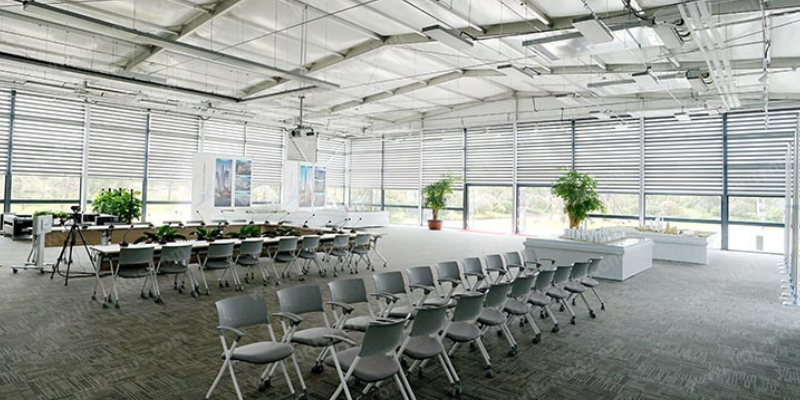With aging school infrastructure and changing classroom sizes, educational institutions are increasingly turning to alternative solutions for modern learning environments. One innovative approach gaining popularity is the use of tented classrooms, which blend outdoor educational experiences with flexible, immersive spaces. These versatile structures not only support traditional education but are also uniquely suited for vocational training, offering hands-on learning opportunities that help students transition from the classroom to the workforce.
The Rise of Vocational Training and Outdoor Learning Spaces
As more students and educators shift their focus toward vocational education, tented classrooms are proving to be a perfect fit. With growing numbers of the workforce choosing vocational paths over traditional college degrees, educational institutions need to provide flexible learning environments that cater to real-world, hands-on skills development. Tented classrooms offer a solution that supports vocational students by getting them out of the classroom and into a space where they can focus on specialized trades and skills. By creating environments that simulate actual work sites, these tents allow students to practice their vocations in a real-world setting.
Tented Classrooms Promote Immersive and Experiential Outdoor Learning
Outdoor tent classrooms foster immersive learning environments that stimulate curiosity and engagement. In these open-air settings, surrounded by nature, students are more likely to engage in exploratory and experiential learning. Research has shown that outdoor environments can improve cognitive function, attention span, and creativity, leading to better academic performance. This is especially important in today’s digital world, where students are often glued to screens. A tented classroom offers an exciting change from the traditional indoor setting, encouraging active participation without distractions like phones or computers.
Moreover, these tented spaces promote inquiry-based learning, allowing students to interact with the world around them. Whether conducting scientific experiments, studying ecosystems, or learning vocational trades, students are able to apply theoretical knowledge in practical ways. This hands-on approach not only enriches learning but also fosters environmental stewardship, teaching students to appreciate the world they live in.
Harnessing Vocational Education in Tented Classrooms
Tented classrooms provide an ideal setting for vocational training, which is becoming an increasingly popular alternative to traditional higher education. By focusing on specific trades and hands-on skills, these classrooms allow students to learn in environments that closely mirror their future workplaces. Whether it’s construction, automotive repair, or agricultural studies, vocational students benefit from practical experience in an open, flexible setting. Educational tents provide the space and adaptability necessary to accommodate these specialized programs, ensuring students are well-prepared for their careers.
Education Tents: Versatile, Sustainable, and Cost-Effective Solutions
In addition to supporting vocational education, tented classrooms contribute to students’ overall development by offering space for physical activity, collaboration, and social interaction. Liri Tent’s clear span tents are designed without internal support poles, maximizing usable space for movement-based learning activities, physical education, and even mindfulness practices. These flexible structures can be adapted to accommodate any class size or subject, making them ideal for schools looking to enhance student engagement.
The open layout also encourages group discussions, collaborative projects, and team-building exercises, fostering a sense of community among students. With customizable tent accessory options like glass doors, wood flooring, and ramps, Liri Tent structures ensure inclusivity and accessibility for all students, regardless of their learning needs.
Built with high-quality materials, Liri Tent structures are a sustainable and cost-effective alternative to traditional brick-and-mortar classrooms. These tents can be quickly assembled on various surfaces—concrete, asphalt, sand, or grass—providing educational institutions with a durable, adaptable solution. In addition to classrooms, these tents can be used for auxiliary purposes like storage, ensuring that schools have easy access to the resources they need throughout the year.
The Benefits of Outdoor Learning with Liri Tent
As the education landscape evolves, outdoor tented classrooms offer a compelling opportunity to redefine learning spaces and educational possibilities. By combining the advantages of outdoor environments with flexible, cost-effective structures, schools can create immersive, experiential learning environments that support academic and vocational training. This forward-thinking approach addresses the immediate challenges of classroom sizes and resource constraints while providing a transformative, inclusive educational experience for students of all ages.
Liri Tent offers a wide range of educational tent structures designed to meet the needs of schools and universities. Whether you need outdoor classrooms, temporary lecture halls, or event spaces for seminars and workshops, Liri Tent provides the flexibility and durability required for modern education. To learn more about how Liri Tent’s outdoor learning solutions can enhance your institution, contact Liri today.

